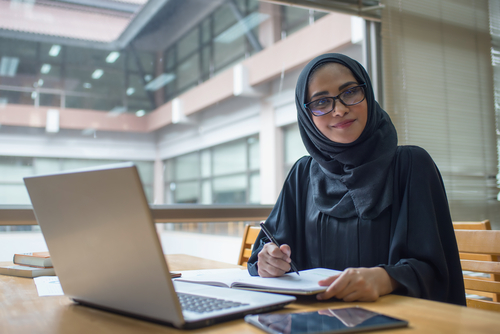ADVOCACY: Banque Saudi Fransi: Women forging ahead
With the Kingdom of Saudi Arabia working towards the objectives of Vision 2030, women are playing an integral – and more prominent – role
What role are Saudi women expected to play in realising the Kingdom of Saudi Arabia’s development strategy, Vision 2030?
Saudi women are and have always been active, productive, ambitious and opportunistic. Their knowledge, skills, commitment and capabilities are now recognised and considered key pillars to the realisation of Vision 2030, thanks to the support of the Custodian of the Two Holy Mosques, King Salman bin Abdulaziz Al-Saud and His Royal Highness Crown Prince Mohammed bin Salman.
Saudi women are now ambassadors, directors and managers and hold other key leadership positions in both the private and public sectors. And I’m proud to say that we as Saudi women are now competing with our male peers in leadership and managerial positions that were monopolised by men for a long time.
What reforms has the Kingdom made over the past year to spur this progress?
As highlighted in the World Bank’s report, Women, Business and the Law 2020, the government of Saudi Arabia has worked tirelessly to develop and implement reforms that have changed the lives of Saudi women and affected them positively. There have been a lot of reforms that I will not be able to list. However, I will highlight the major ones, which include the removal of the ban on women driving, guardianship, anti-discrimination laws in all stages of employment (including equal pay) and the lifting of travel restrictions on women.
In addition, the Kingdom has lifted the ban on women’s mobility, encouraged women’s entrepreneurship by granting them the right to independently open and run a business, passed a sexual harassment law and expanded the opportunities for women to occupy senior government positions.
What impact have these reforms had thus far and what further steps remain?
These laws built on a series of reforms that have transformed the Kingdom over the past few years. Our contribution is now being recognised and appreciated. Our role has expanded to other sectors and positions that were male-dominated.
This is only the start and the effects of these changes are still young. However, we are confident in our leaders and we understand that full implementation and cultural transformation will take time and be done gradually.
How have these reforms and their impact inspired and shaped the work of the Business 20 and the G20 itself in preparing the gender equality agenda of the Riyadh Summit?
This issue is not new and has appeared high on the agenda for several years. However, with global economic and market dynamic changes, the awareness of gender equality and women’s empowerment in the workforce has increased significantly not only in Saudi Arabia but globally as well. Women nowadays are empowered to address their concerns and positively participate and engage in the preparation of the G20 agenda.
With this impetus, how can the G20 leaders best advance the cause of gender equality at their Riyadh Summit this year?
This year is an exceptional one, with the current pandemic and its social and economic implications around the world, which have affected women in so many ways including losing jobs and higher incidence of domestic violence during lockdowns. Therefore, the collaboration among G20 leaders is now more vital to adopting policy actions to foster greater gender equality in the labour market and promote key leading positions to women to ensure proper and speedy use of these reform policies.












